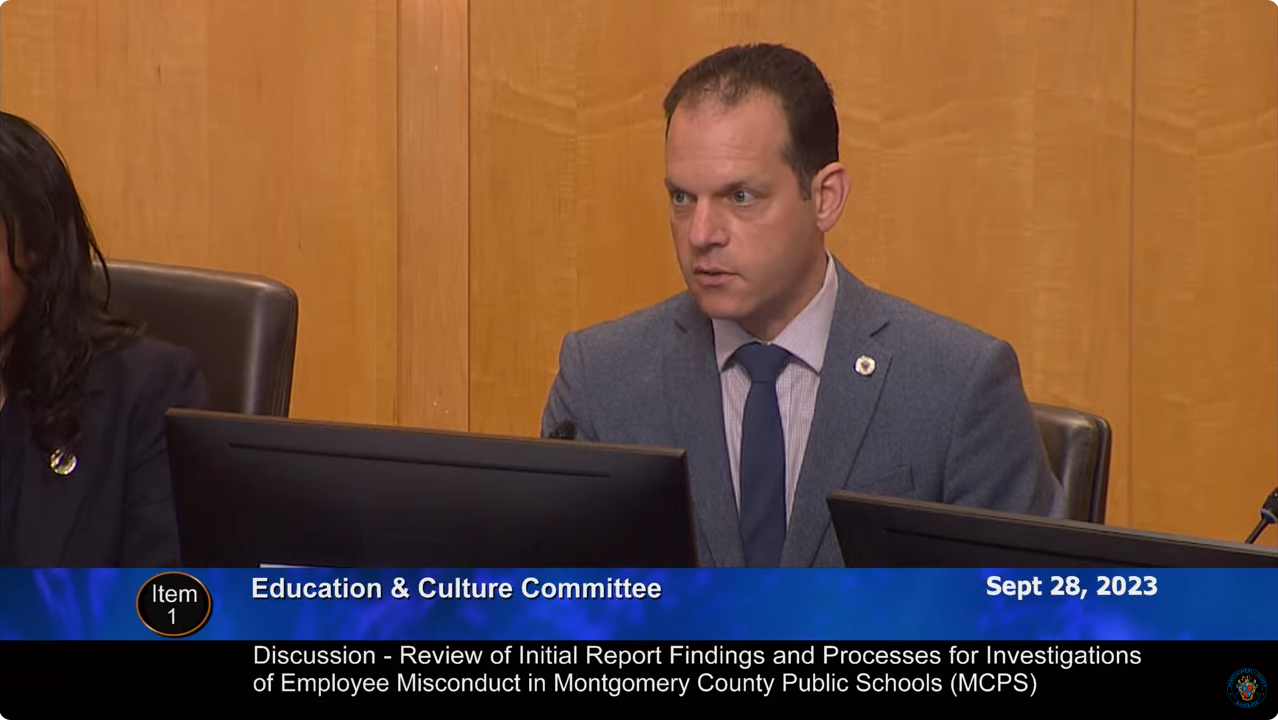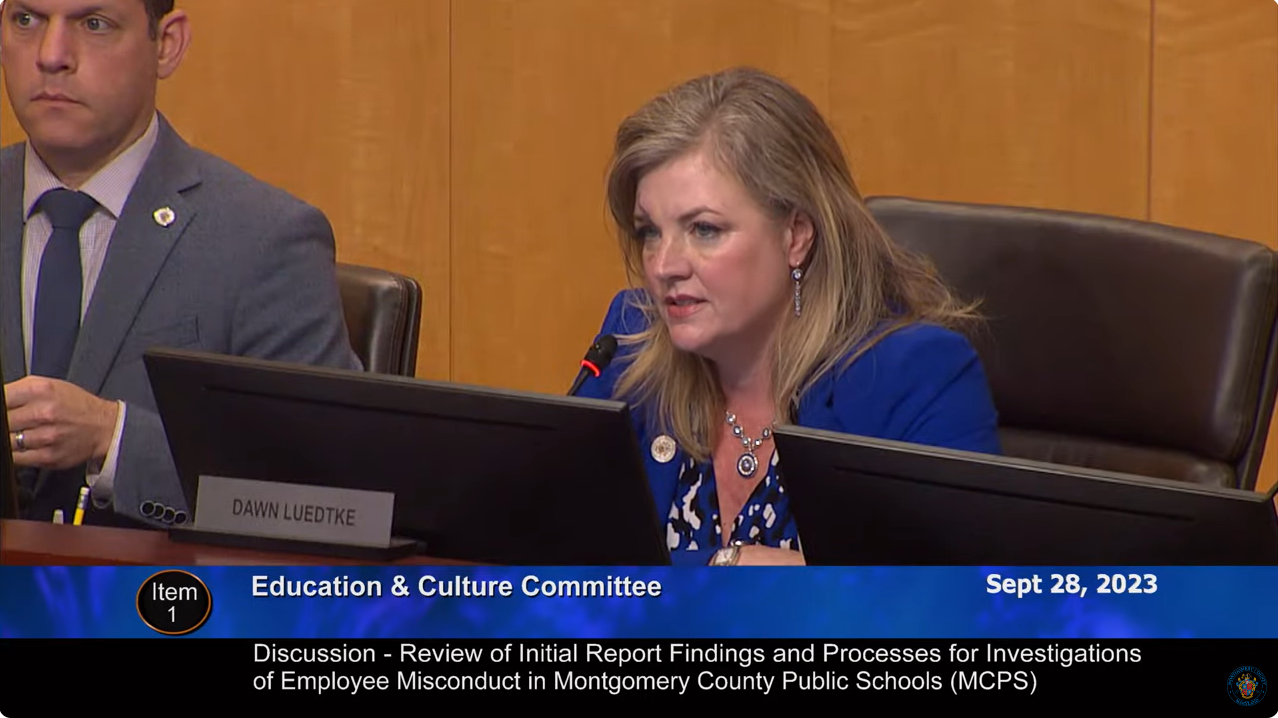By Adam Pagnucco.
Part One began our transcribed account of the momentous county council discussion of MCPS’s sexual harassment scandal. Let’s resume.
Superintendent Monifa McKnight contradicted the Jackson Lewis report’s finding that MCPS did not investigate anonymous complaints.
The Jackson Lewis report summary stated the following about anonymous complaints: “All formal complaints relevant to the investigation were investigated and addressed by MCPS, but there is evidence that MCPS has long-standing practices and processes in place that resulted in anonymous and informal complaints not being formally investigated. Specifically, MCPS did not formally investigate (by interviewing witnesses, interviewing the accused, or rendering a written determination pursuant to its policies) any of the multiple relevant anonymous complaints that it received. Many of those anonymous complaints contained sufficient details to enable MCPS to initiate a formal investigation, pursuant to its policies and procedures for investigating complaints against staff.”
Under questioning by Council Member Will Jawando, the superintendent disagreed with this finding. She said, “MCPS does investigate anonymous allegations. However, I’m sure through the IG’s investigation, we’re going to be able to look at this process more closely and how consistent or inconsistently that may or may not happen.”
This is a material dispute of fact between the superintendent and MCPS’s contracted law firm. Hopefully the inspector general can resolve this.
MCPS may automatically delete emails it receives.
Council Member Evan Glass discussed the emails referenced by the teachers union describing former Principal Joel Beidleman’s conduct, emails which the Jackson Lewis report contended were not received by the superintendent and school board.

Council Member Evan Glass.
He then asked, “In the Jackson Lewis report, it states that after searching MCPS’s email servers, it did not find these emails I’ve referenced, that it was not found in the in boxes. So I’ve heard, and I’m asking, is it true that emails sent to the board and/or senior MCPS leadership are automatically deleted after a period of time?”
Board of Education President Karla Silvestre replied, “I’m not an expert in terms of the technology system of MCPS but I believe that there is a – they’re not there indefinitely. There is a period of time after which all emails are deleted. But I can’t tell you exactly how long that process is.
Glass: “Do either of you know how long?”
McKnight: “Yes, Council Member Glass, it is exactly one year in which emails are deleted at the time which they have been sent.”
Multiple council members called for this policy to end. Later, Silvestre returned to the subject of emails and said, “They are archived. And what I’m not prepared to tell you today is how that system works. The one year mark is there but there is an archiving process as well and we can come back and give you more information on how that works.”
So are the emails deleted or not? Can they be accessed after one year? This is important because if there is a long stream of emails over time about an employee like Beidleman, long-term storage is necessary to establish a pattern of allegations.
MCPS has minimal staff assigned to investigate complaints.
Council Member Dawn Luedtke asked McKnight this question: “The Department of Compliance and Investigations is the entity within MCPS central office that handles these types of investigations, whether it’s workplace harassment, sexual harassment, child abuse and neglect, right?”

Council Member Dawn Luedtke.
McKnight: “Correct.”
Luedtke: “How many people work in that division?”
McKnight: “So we currently have about… we have a director, two coordinators and I believe three to four investigators.”
MCPS’s FY24 budget shows that the Department of Compliance and Investigations has one director, two coordinators, three investigation specialists, two administrative secretaries and one background screening specialist. That’s nine positions handling complaints in an organization with roughly 25,000 employees and more than 160,000 students.
We will conclude in Part Three.
